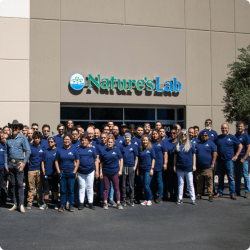


Wearing sunscreen daily is the best way to prevent wrinkles and other signs of aging by filtering out intense UV radiation. Scientific research shows that what you put on your skin and consume can help your skin during sun exposure.
The sun is responsible for 80 percent of skin aging. UV rays cause a chemical reaction in the skin's epidermis, increasing inflammatory markers. These inflammatory materials break down the components of skin associated with a youthful appearance: collagen, elastin, and hyaluronic acid.
Studies have shown the breakdown process of the skin begins with less than 5 minutes of sun exposure. Of course, our skin has its internal defense systems. Melanin, the pigment that gives skin its color, provides a small amount of sun protection. The darker your skin, the higher the melanin content and intrinsic sun protection. No matter how much melanin content you have in your skin, sunscreen should be worn regularly. Along with your sunscreen application, these supplements may help protect your skin against harmful UV rays.
Hyaluronic Acid and UV Exposure

Hyaluronic acid is one of the most popular skincare ingredients due to its water-binding abilities. During youth, hyaluronic acid is abundant throughout the skin, giving a plump and supple appearance. Hyaluronic acid production gradually decreases each year after your thirtieth birthday. Sunlight speeds up the breakdown of hyaluronic acid by activating inflammatory particles.
Recent studies show evidence that supplementing with hyaluronic acid may slow the breakdown of existing hyaluronic acid in our skin.* Between the sun and normal aging, hyaluronic acid is depleted faster than the body can make it. However, taking hyaluronic acid supplements is a great way to support the body’s production of hyaluronic acid.* To reap the benefits of this ingredient, you can find it in Nature’s Lab Gold Turmeric + Joint Complex and our customer favorite, Nature's Lab Gold Hyaluronic Acid with BioCell Collagen & OptiMSM. Both formulas contain 100 mg of hyaluronic acid per serving plus other ingredients for skin support.
Supplemental Collagen for Healthy Skin*

Collagen, the most abundant protein in our body, is the subject of much research involving skin rejuvenation and repair. Collagen applied topically does not have much effect on the skin’s appearance. Still, internal collagen supplementation can support the skin’s health and the health of cartilage and other joint structures composed of various collagen types. One particular study showed that collagen supplements provided an increase in skin hydration and skin thickness.* Numerous other scientific trials have shown collagen supports the skin’s fibroblasts.* This is key to collagen's potential as a photoprotective agent.
Fibroblasts maintain the skin and are also involved in wound healing. They create collagen, elastin, and hyaluronic acid. With what we know about how sunlight damages these essential building blocks of the skin, collagen supplementation’s stimulation of fibroblasts may help support the skin during and after sun exposure.* Nature’s Lab Gold Turmeric + Joint Complex and Nature's Lab Gold Hyaluronic Acid with BioCell Collagen & OptiMSM both contain hydrolyzed collagen. The smaller collagen particles in these formulas make it easier for your body to absorb and utilize it efficiently.*
Astaxanthin Skin Benefits

Astaxanthin is a red pigment involved in the natural photoprotection of certain plants and animals, especially marine life, such as krill, lobsters, and algae. It has shown impressive benefits for immune function, joint mobility, and skin health due to its unparalleled antioxidant power.* Astaxanthin possesses nearly 6,000 times the antioxidant potency of vitamin C.* One study showed that women taking at least 6 mg of astaxanthin for sixteen weeks showed significantly fewer signs of sun-related skin damage than a placebo group. Nature’s Lab AstaREAL Astaxanthin contains 6mg of this antioxidant in one softgel. Astaxanthin improves oiliness and excessive redness in the skin and can also be a useful resource in combating oxidative stress from UV exposure.*
It’s important to remember that these supplements do not replace sunscreen. Always apply an SPF 15 or higher daily for optimal protection. Supplements containing hyaluronic acid, collagen, and astaxanthin are a great place to start if you want to give your skin more support against the sun and the elements.
Save on our collection of Summer Supplements for a limited time.
References
Kang, M. C., Yumnam, S., & Kim, S. Y. (2018, November 11). Oral intake of collagen peptide attenuates ultraviolet B irradiation-induced skin dehydration in vivo by regulating hyaluronic acid synthesis. International journal of molecular sciences. Retrieved June 7, 2022, from ncbi.nlm.nih.gov/
Papakonstantinou, E., Roth, M., & Karakiulakis, G. (2012, July 1). Hyaluronic acid: A key molecule in skin aging. Dermato-endocrinology. Retrieved June 7, 2022, from ncbi.nlm.nih.gov
Tominaga, K., Hongo, N., Fujishita, M., Takahashi, Y., & Adachi, Y. (2017, July). Protective effects of astaxanthin on skin deterioration. Journal of clinical biochemistry and nutrition. Retrieved June 7, 2022, from ncbi.nlm.nih.gov







